osh is senior lecturer in the Department of Sociology and Anthropology at the Institute of Criminology at The Hebrew University. You can find him on Substack.
The Demonization of the Unvaccinated is Nothing New
By Josh Guetzkow March 2
An interesting pre-print surfaced a couple of weeks ago on PsyArXiv. The topic? Prejudice Against the Unvaccinated. And by unvaccinated, I mean unvaccinated against COVID-19.
The key finding is that across 21 countries, the antipathy people felt against the unvaccinated is 2.5 times higher on average than it is against migrants from the Middle East. So basically, the unvaccinated are universally hated.
For those of you who have just started tuning in to this issue over the last year or so, this is not a new phenomenon. The campaign to demonize and dehumanize “anti-vaxxers” had been brewing and intensifying for several years before it boiled over into the madness we’ve witnessed over the past year. So I’m going to dig into the details of the paper a bit and then show you some shocking examples of vitriol aimed at “anti-vaxxers” from the pre-COVID era.
To be clear, the pre-print only examines antipathy towards unvaccinated, not “anti-vaxxers” per se. But in the world we live in today, not being vaccinated makes you an “anti-vaxxer.” In fact, you are presumed to be an “anti-vaxxer” even if you have been vaccinated but speak out against punitive measures against the unvaccinated, decline a booster dose, or speak up about how you or a loved one was injured after being injected. How somebody who just got vaccinated can be branded an “anti-vaxxer” escapes me, but such is the present state of mainstream logic and reasoning.
To start off, what exactly do the authors mean by “antipathy” or prejudice? They make use of “a standard measure of exclusionary reactions in family relationships,” namely they presented respondents with a profile of someone whose vaccination and immigration status were randomized (yes or no), along with some other characteristics, and asked whether they agreed with the following statement: “I would be unhappy if this person married one of my close relatives.” (So if you want to piss off your parents, marry someone who is unvaccinated.)
The authors chose to compare the unvaccinated to migrants from the Middle East, because the study was global and the latter group are, sadly, universally discriminated against all around the world. The diagram with their key results is labeled “average level of antipathy towards vaccination outgroups:”
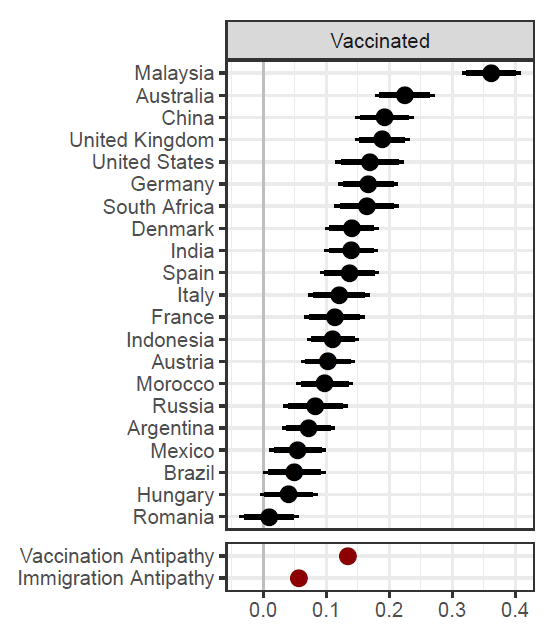
Basically, the further off to the right a country is, the more weight that being unvaccinated had on disapproving of a close relative marrying “that person.” Malaysia is off the charts, and one has to wonder what kind of especially hate-filled propaganda campaign has been waged in that country. Australia is next on the list (which helps explain why the country was willing to go along with interment camps for the unvaccinated), followed by China, the UK and the US.
At the bottom of the figure is a comparison of the average antipathy towards the unvaccinated compared to immigrants. Notably, the figure shows the levels of antipathy towards those two groups among vaccinated respondents. Not shown here is the part of the figure that shows that, among unvaccinated respondents, the level of antipathy against migrants is the same, but there is no discernible antipathy towards the unvaccinated.
The authors also tried to delve into what was driving this antipathy. Not surprisingly, they found that fear was a key factor: the more people were afraid of being infected by someone who was unvaccinated, the more likely they were to express disapproval at a close relative marrying someone who is unvaccinated. Specifically, people who agreed with the statement that “I would be afraid that this person infected me or my family with COVID-19” were much more likely to disapprove:
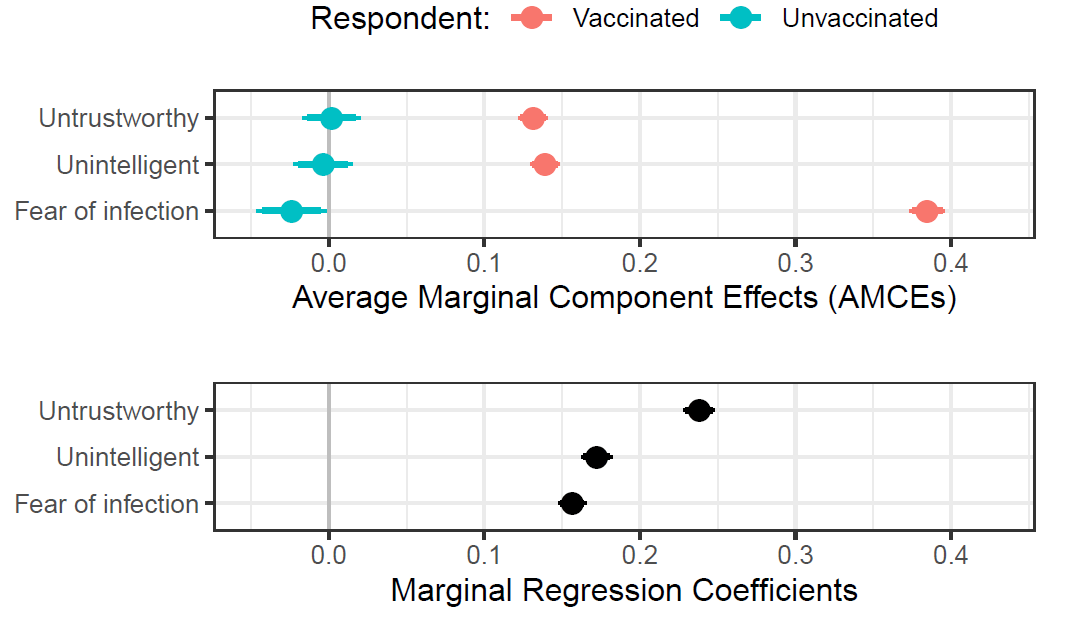
This is a clear indication of the connection between fear and hatred of “the other.” There were also strong associations between antipathy towards the unvaccinated and agreeing with the statement that you think the person your loved one is going to marry is untrustworthy and unintelligent. Again, this was true among the vaccinated but not among the unvaccinated. (The top and bottom panels are just different ways of measuring the association between antipathy against unvaccinated and assessments of their intelligence, trustworthiness and fear of contagion.)
Interestingly, there was less antipathy towards the unvaccinated in countries with higher rates of COVID-attributed deaths. There was greater antipathy in countries with higher levels of social trust and vaccination rates. They conclude the paper with some interesting thoughts about what this all means for efforts to increase vaccination rates, although they repeat the catechism that the COVID-19 vaccines are safe and effective.
The Ugly Face of Hatred
These results are striking, but nevertheless quite sterile. What happens when we take them out of the rarefied atmosphere of the ivory tower and into the real world? What does this “antipathy” actually look like, besides not wanting a relative to marry “one of them?” Below I’m going to post screenshots of hateful comments aimed at “anti-vaxxers” prior to the COVID era.
I put quotation marks around “anti-vaxxers” because, in my opinion, the term is basically a Pharma marketing term cooked up in the offices of some high-priced PR company. It is part of the massive, longstanding, multi-pronged propaganda campaign to silence all critics and criticism of vaccines or doubts about vaccine safety, no matter how sober, scientific or evidence-based they are. It is one of the cornerstones of the campaign that has mesmerized otherwise intelligent M.D.’s and Ph.D.’s into instantly dismissing any connection between the COVID-19 vaccines and the obvious harm they cause. The term is also meaningless, or has become meaningless, since someone who has been vaccinated or only thinks these particular vaccines have proven unsafe can hardly have their views defined by such a crude, all-encompassing term.
A few comments on the screenshots before I paste them in. Perhaps the most amazing thing about these statements is that people felt that it was OK to express these opinions “out loud” in public on-line settings and were often encouraged and congratulated by others.1 This is in contrast to other forms of prejudice that people have become more reluctant to express openly as such views are seen as illegitimate or not acceptable in polite society. But here they felt no shame. And since these people had no problem expressing their views in public, I am not going to go out of my way to protect their identities, though in some cases the screenshots were anonymized before being sent to me.
The fact is that “anti-vaxxers” are one of the only groups that people are now allowed, even encouraged, to hate openly. This was true before COVID and it only got worse over the last year, as politicians and talking heads incited against “anti-vaxxers.” I think one of the reasons it is viewed as acceptable is because it is basically a decision rather than something you’re born with (an achieved vs. ascribed characteristic one might say). And it fits right in to the current political atmosphere of constant outrage and anger.
In Israel “anti-vaxxers” became public enemy number one. In the summer Prime Minister Naftali Bennet likened “anti-vaxxers” to terrorists who walk down the street with a machine gun shooting “delta variant” bullets at people. Many news anchors and media personalities said that anti-vaxxers were murderers or no better than murderers. And I know Israel is no exception. If you have examples from your own country, please share in comments.
I watched in horror as several countries began talking about or actually building “quarantine” camps for the unvaccinated or those suspected of being infectious, especially because of what I already understood about pre-existing “antipathy” towards “anti-vaxxers,” as exemplified by this Facebook group, which pre-dates the COVID-19 era:
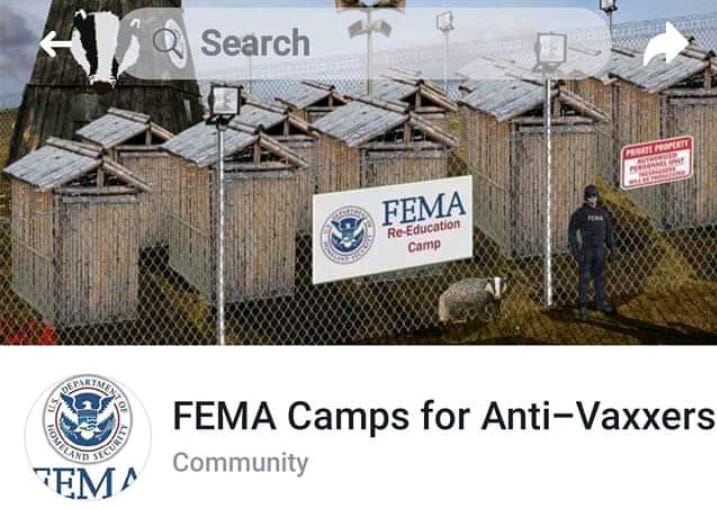
Over the past year, as the campaign to demonize and dehumanize the unvaccinated intensified, I listened to the warnings of holocaust survivors who were telling us that they had seen this all before. It was all too easy to imagine it happening again. And while it seems like we have stepped back from the precipice, the hatred will persist and it won’t take much next time around to push us over the edge.
So the next time you are about to say, “I’m not an anti-vaxxer but…” stop and think for a second about the kind of legitimacy that gives to the campaign of incitement and hatred against so-called “anti-vaxxers.” You’re basically saying, “it’s not okay to hate me because I have a problem with COVID-19 vaccines, but it is okay to hate people who have a problem with other vaccines.”
If you think the sentiments expressed below are bad, imagine how much worse things have become now that open season has been declared on “anti-vaxxers” by politicians, government officials and leading journalists:
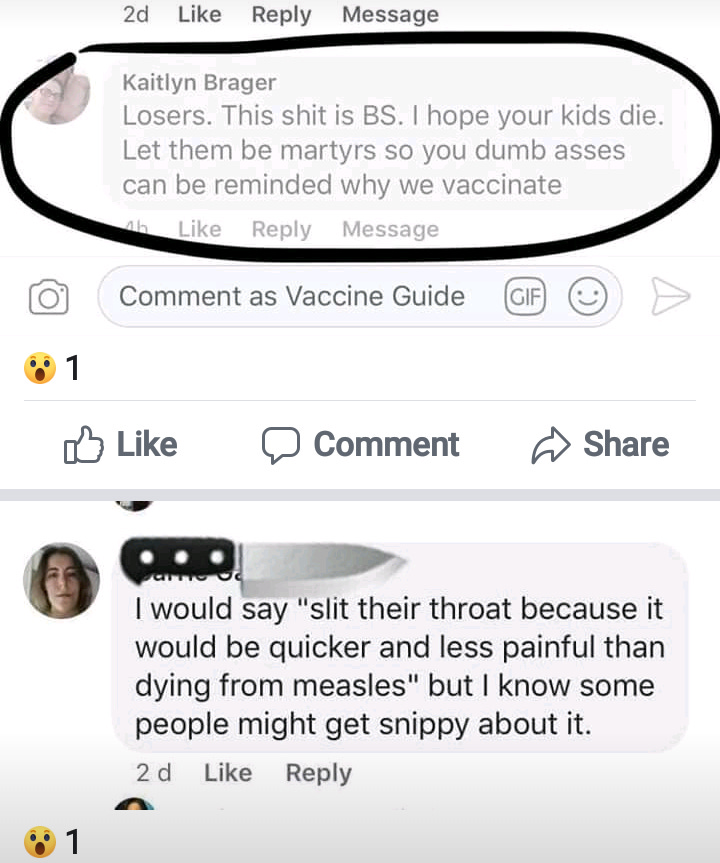
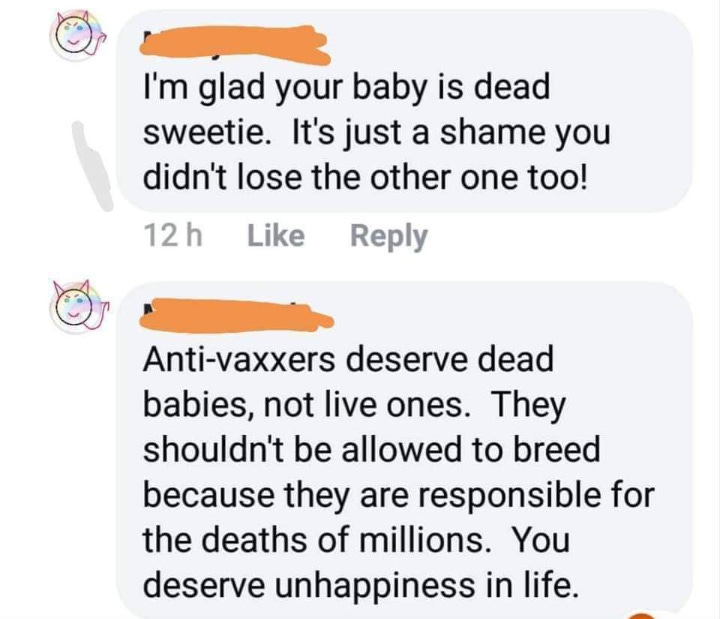
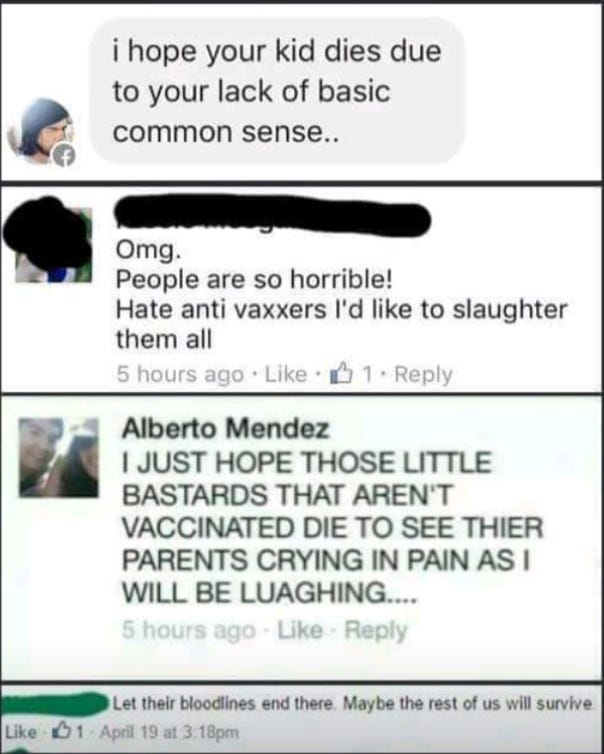
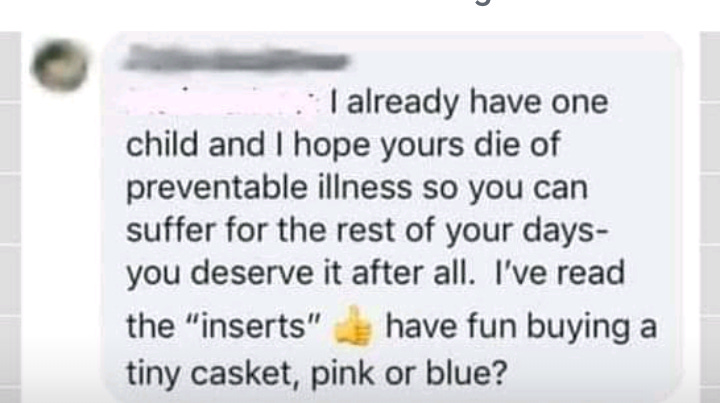
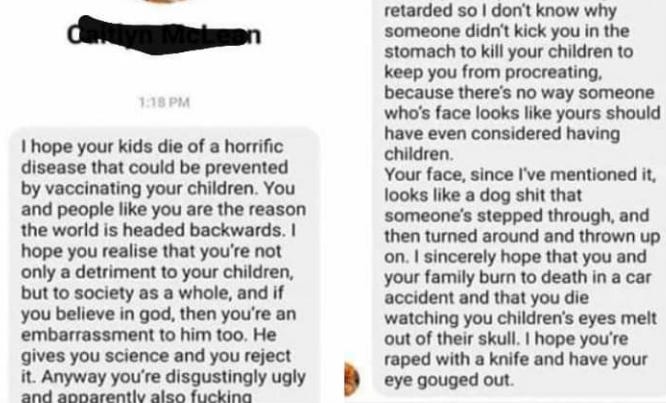
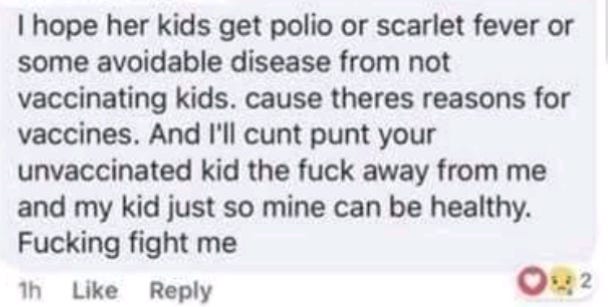
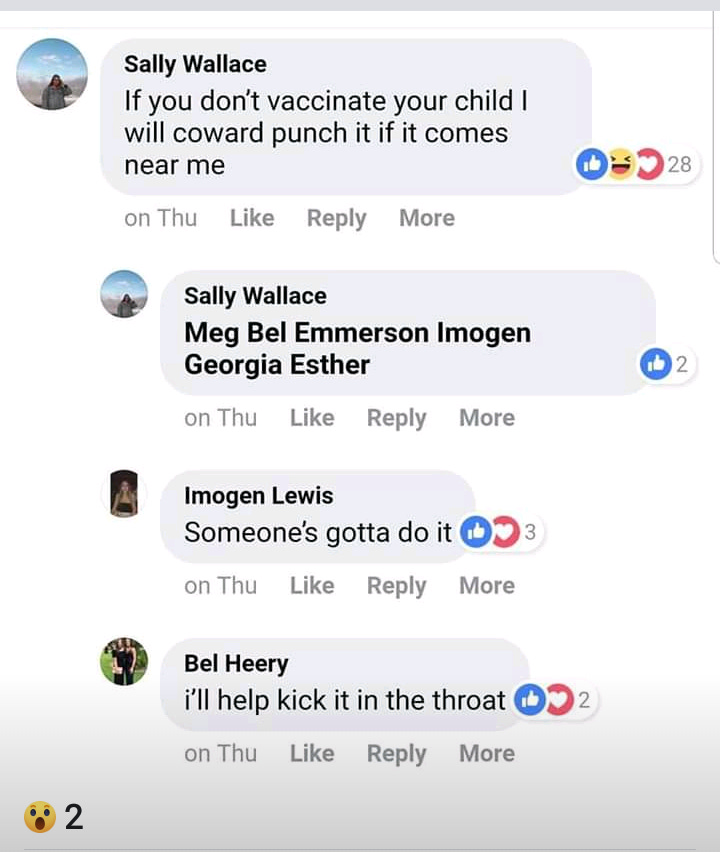
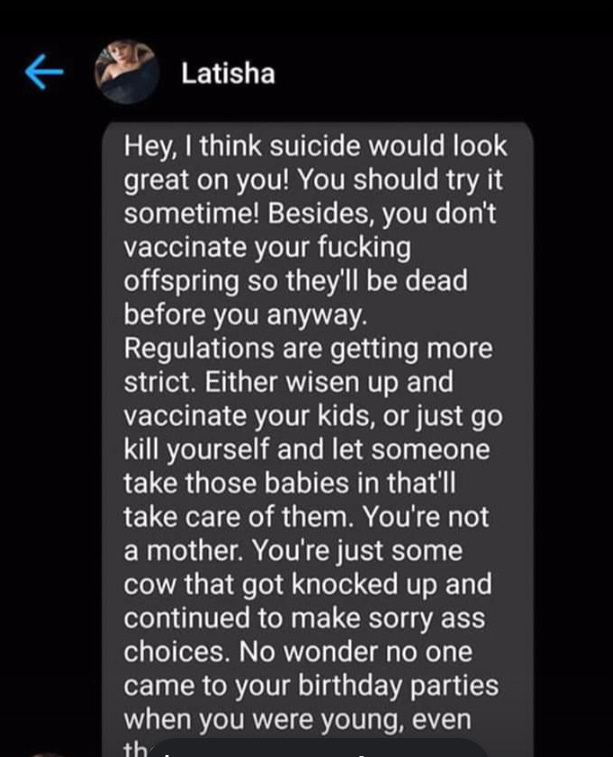
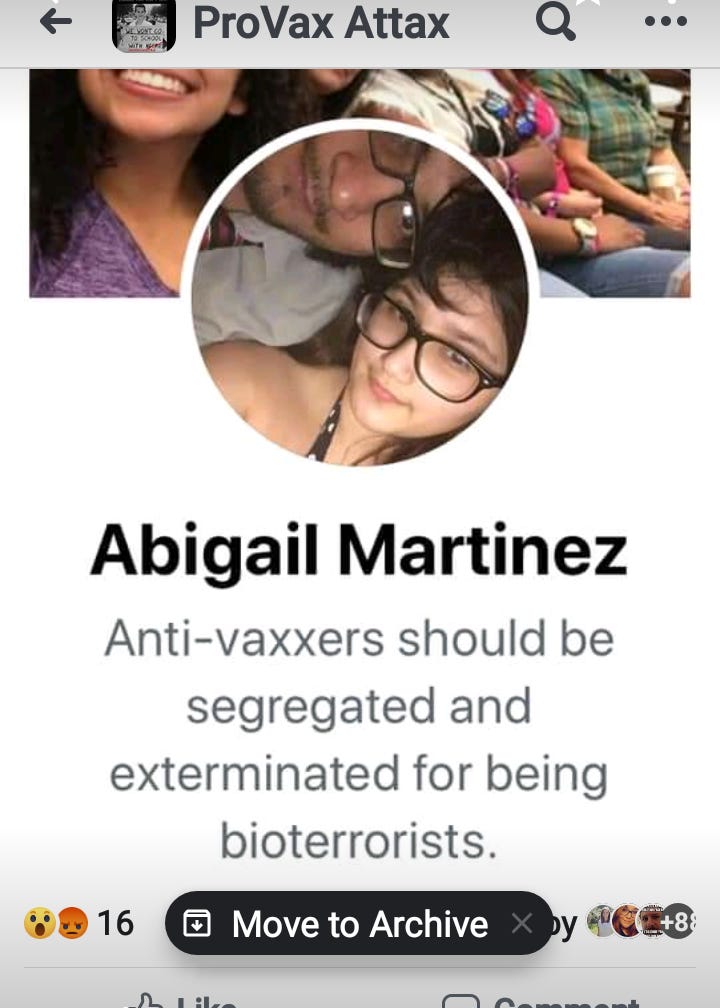


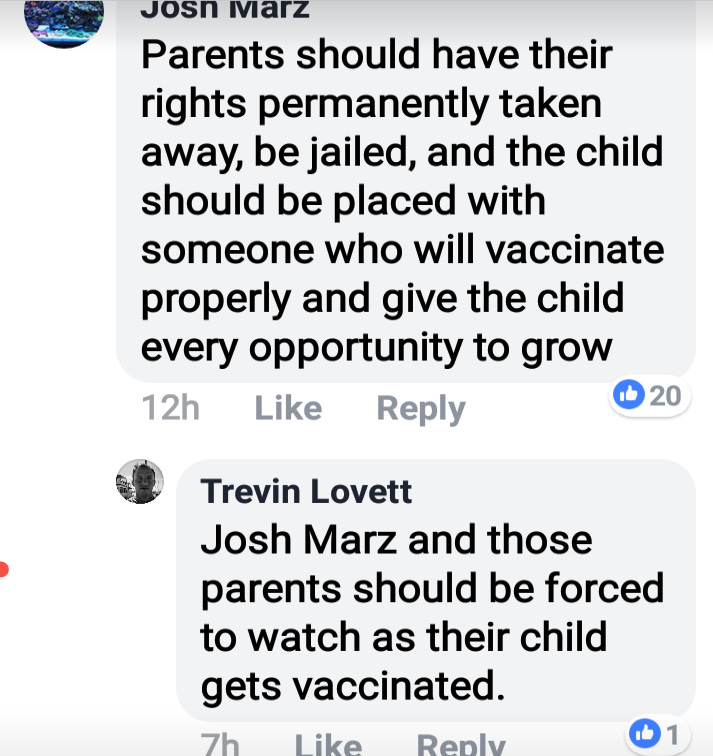
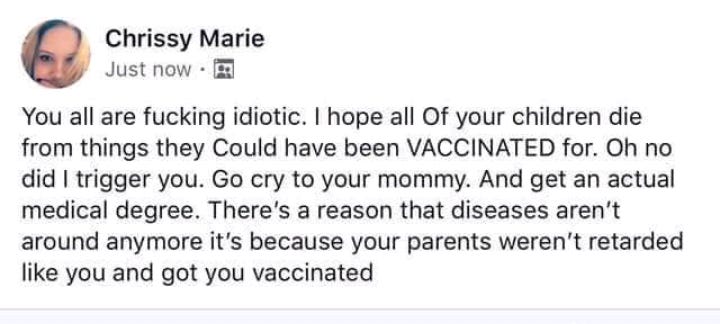
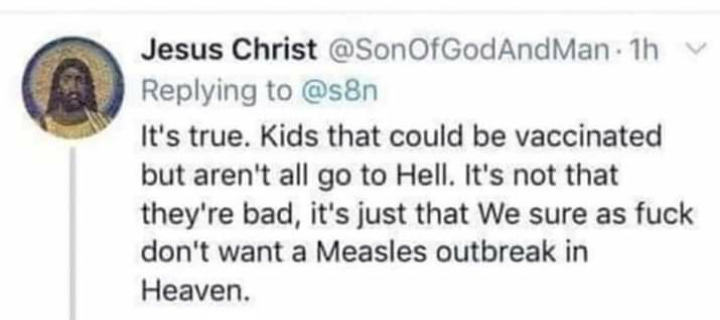
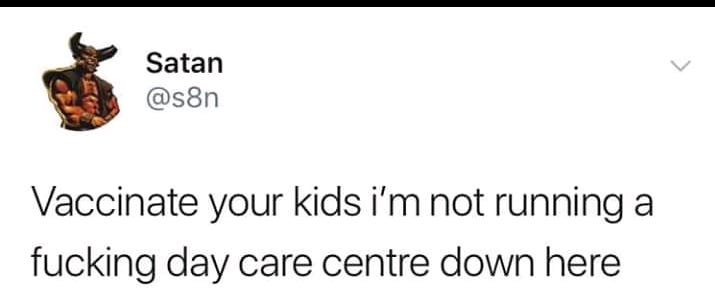
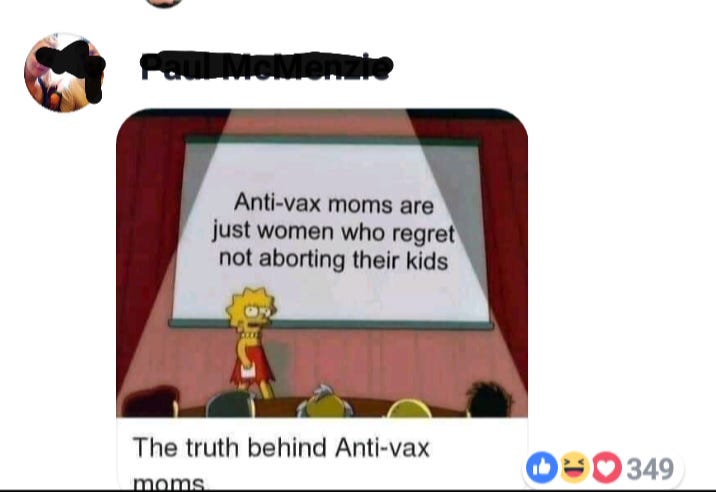

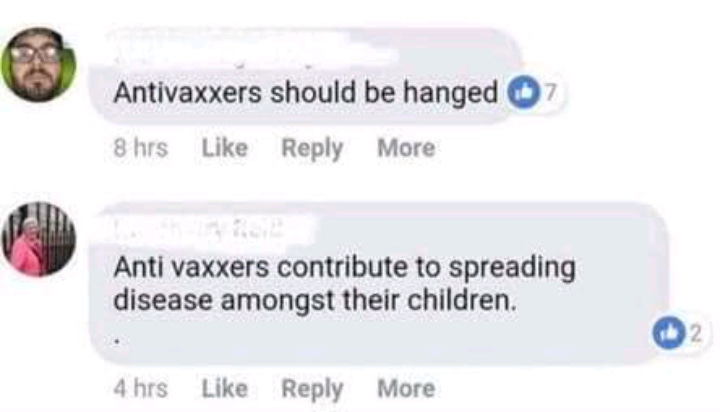
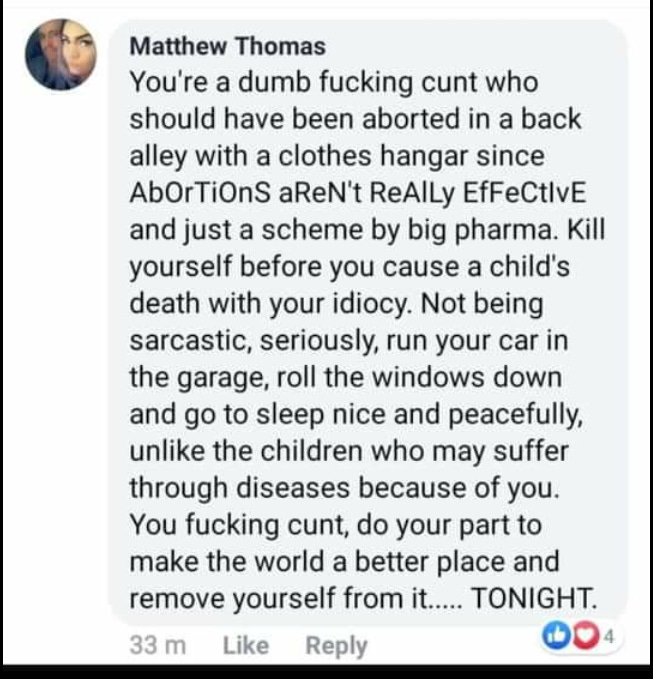
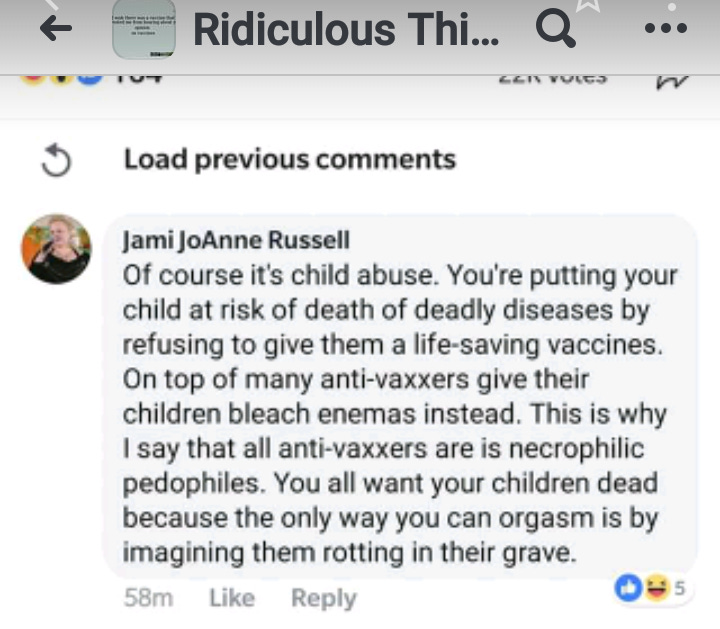
We have to consider the possibility that these people are deliberately trolling or simply Pharma shills paid to promote this kind of sentiment. Why would they do that? To promote and, especially, to normalize hatred against anti-vaxxers. If you think this is absurd conspiracy theory, then you simply haven’t studied up on how Pharma operates.

